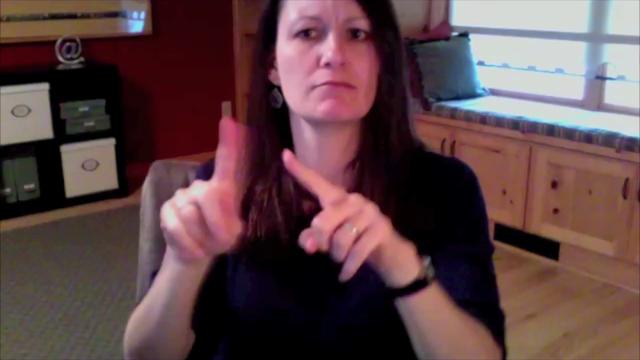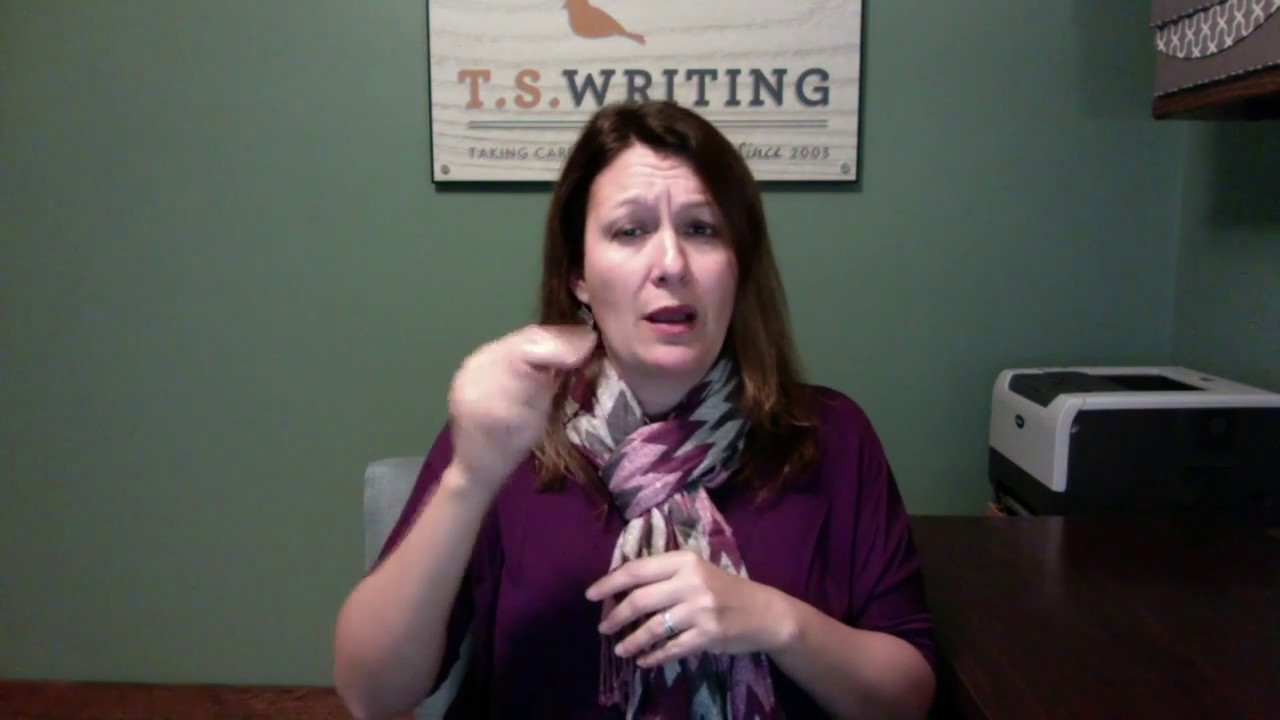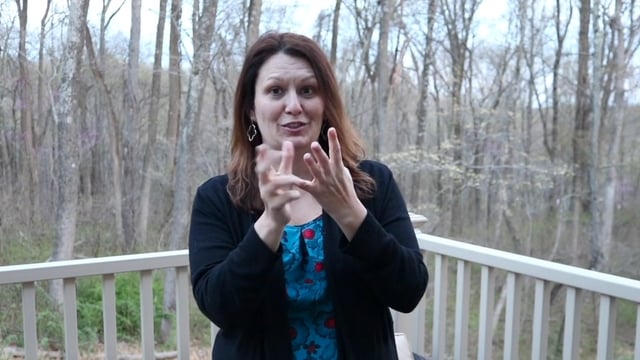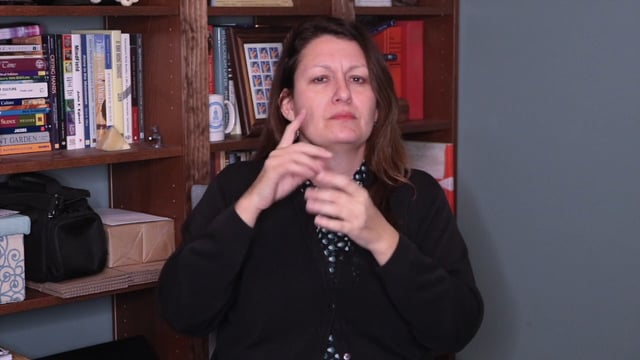Better opportunities is a phrase I see thrown around casually, sometimes defiantly. It often comes from parents of deaf children who reject certain educational settings or American Sign Language (ASL) for their children, saying, “I want better opportunities for my children.”
Yet this phrase often unintentionally serves as subtle oppression. Several years ago, an expectant parent told my husband, “I really hope the child is hearing, because it’ll mean better opportunities for her/him.” This parent had two other children—one hearing, one deaf. Why would this parent belittle the deaf child by saying that having another hearing child would be better? Why in the world would being deaf equate to less desirable opportunities?
Let’s take a quick look at what “better” means. In the western world, we are primed to strive for bigger and better. Bigger TV? Awesome. Better brands for clothing? Fab. Higher pay? Great! Yet, as we all know, more is not always better. After all, better—a subjective word in itself—is defined as “more attractive, favorable, or commendable, more advantageous or effective” (Merriam-Webster). I don’t necessarily think people would find me better, as in more favorable, if I were male or hearing, two categories often credited with holding more privilege than what I am—a Deaf woman. Rather, as a friend said to me, “It is about a fit between a person, his/her interests and abilities, and an opportunity.”
Lest you think I’m not guilty of having thrown around the “better opportunities” phrase—I most certainly am. Years ago, when I was asked why I went to a mainstreamed high school, I said it was more challenging and a better opportunity. Now, in retrospect, I realize it wasn’t better. It was simply different. The challenges didn’t stem from more rigorous schoolwork; rather, they stemmed from the teachers’ communication difficulties and the ghastly interpreter quality.
Just because we choose a different path does not mean we have better opportunities. “I chose to go to a public school because it offered me better opportunities,” or “I choose to speak instead of sign because I’m given better opportunities that way” ignores what another path may offer. After all, if I didn’t sign, I wouldn’t have the opportunities I’ve had. Are they better opportunities than if I were hearing, could speak, or were a male? Absolutely not. They’re different.
Because I am Deaf with specialized skills in two languages, I provide quality services to a niche population through my company. If I were hearing, I would probably serve a different niche. Or perhaps I’d be in a completely different field. I really don’t know, but it really doesn’t matter. I am happy where I am now—and I can confidently state that every opportunity I had, good or bad, came about because I am Deaf, have specific skills, and had opportunities that best fit me.
In Far from the Tree, author Andrew Solomon argues that if we wish for something different for our children, then we are not really accepting that child for who he is. He writes, “Though many of us take pride in how different we are from our parents, we are endlessly sad at how different our children are from us.”
It’s natural for parents to want their children to easily overcome obstacles. Even so, the fact is that discrimination exists. I couldn’t even get a job at Borders many years ago, because the manager wasn’t convinced a deaf person could work in a bookstore (never mind the fact that I knew more about the books in that store than she did). The person who got that job might have used it as a springboard to career opportunities within Borders instead of having gone on to establish a successful company like I did—or not.
The fact is that discrimination exists for any group—deaf, women, people of color, or even men. We all encounter challenges in life based on identities, physical appearances, skills and a host of other factors. Even if we are considered to be in privileged categories, we face different discrimination types. The point is, opportunities aren’t necessarily better; they’re different. What one perceives as better is probably in reality a simple change of circumstances. If I were a white, hearing, handsome and well-educated male, would I have better opportunities? Ehhh. I don’t think so. They might be perceived as better, when in reality, they’re simply different. I wouldn’t have had the rich life experiences I’ve had as a result of not having hearing privilege.
To wish my four deaf children had better opportunities dismisses the unique value of the opportunities they already have or will have as a result of their circumstances. After all, they have parents—pretty darned amazing ones, if I may say so—who love them unconditionally, which is more than many children have. They have a wonderful group of peers, which is more than many people have, deaf or hearing. They have an awesome home with a playroom, their own bedrooms, and their own bathroom—which is more than many children, or even adults, around the world have. They have majestic views and plenty of land to play outside on—which is more than many could ever ask for. They have access to natural, free-flowing, unobstructed language 24 hours a day—which is more than many have. They are strong-willed, opinionated and hilarious, and most importantly, encouraged to be who they want to be in every way.
I celebrate them for who they are, from their diverse hair textures to their personalities to their quirks to their interests. They are who they were born to be. Whatever opportunities they choose will be there because of who they are, not because they pursued better opportunities. Don’t get me wrong—I want nothing but the best opportunities for them. We don’t need to be something better to have the best opportunities. Rather, we need to honor who we really are, strive to do the best we can with whatever opportunities, and celebrate our beings. After all, as Bruce Lee said, “To hell with circumstances; I create opportunities.”
Copyrighted material. This article cannot be copied, reproduced, or redistributed without the author’s written consent.






I love your perspective of what is “better” is not always best. Everything comes down to timing and matching and variety of natural internalization of every individual. Everything you said is correct based on my personal and professional experiences. I agree with you absolutely!!therefore nothing to add or to subtract!! Grins.
Agreed. “Hearing is better” or “Mainstream is better” or “CIs are better” or any other thinking along these lines are products of audism. The use of the word “speak” to represent the use of voice is also subtly audistic, as it implies that Deaf people aren’t speaking when they use ASL.
Deaf people are wonderful as they are, and should not be held up to hearing people at all.
You hit the nail on the head. Love your article!
Oops, I hit the post key before I finished my thought. I remember very clearly my conversation during my 25th reunion at Gallaudet with an old classmate who said if she gave birth to her Deaf children today, she would implant them because it would give them better opportunities. She was sorry it was too late for her to do so. Ouch! I hope she will read your article or watch your vlog.
You are brilliant! Love to see and read your thoughts!Bravo!!
Touche’ ! A well-contemplated article :-)
Marvelous essay! I hope that hearing parents of new deaf babies have the ability to understand it, even though they may be overwhelmed.
There are trade-offs in every situation. I had a “better” education in university, but the trade-off was isolation and loneliness. I had a “better” all-around education in school for the deaf, but the trade-off was less challenge in the coursework and in research skills. The eventual solution was to change situations every few years and obtain balance this way. Above all, the most valuable skill obtained in this was my mastery of American Sign Language in addition to English. My speech skills never attained comprehensibility, and my hearing went to oblivion…neither of these were barriers to all the challenges in my life. Pfft, how massively overrated they were when I was young.